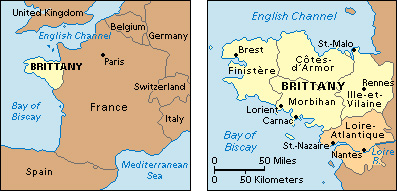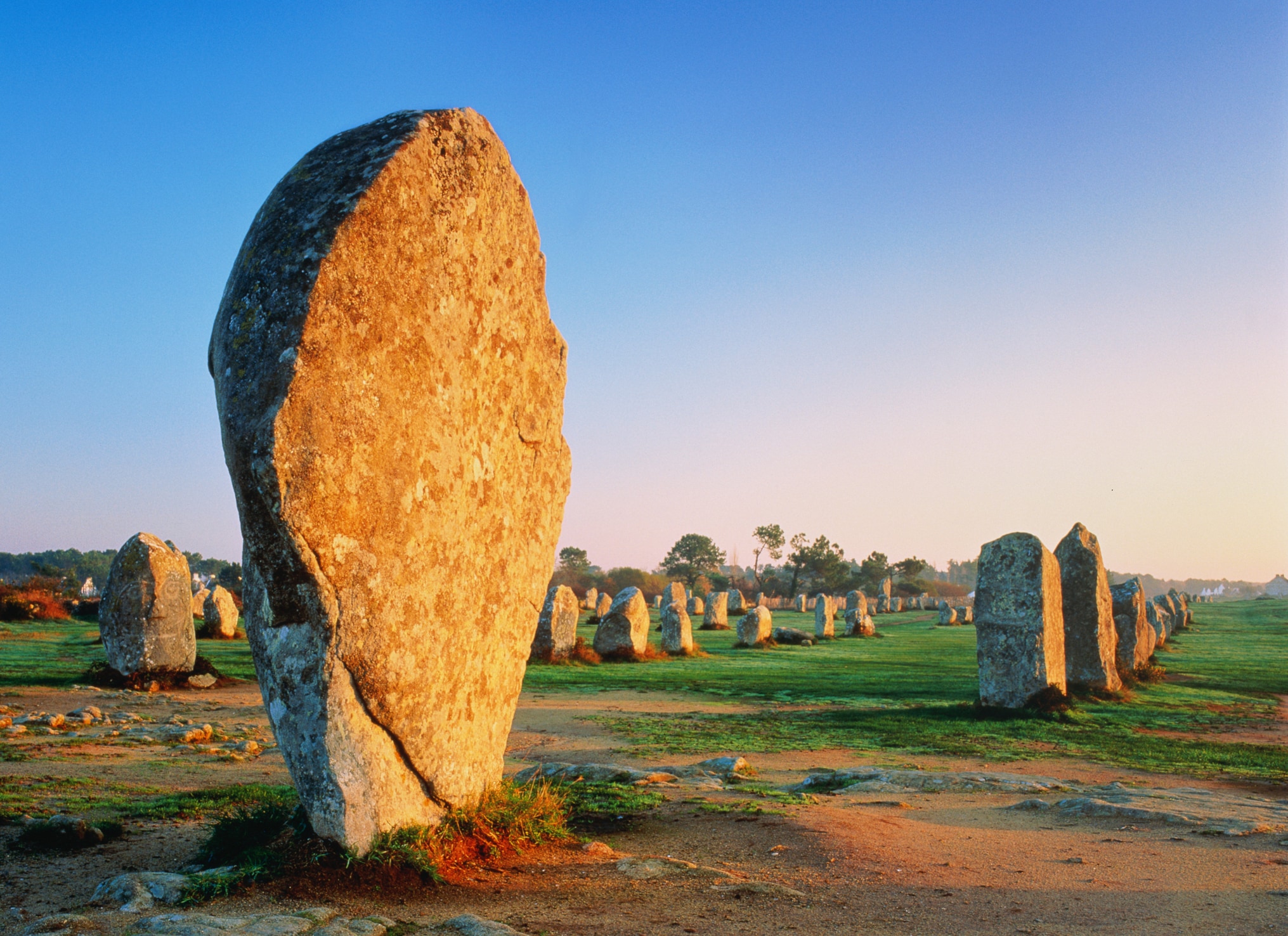Brittany is a region in northwestern France. It covers the peninsula that separates the Bay of Biscay from the English Channel. Its name in French is Bretagne. Brittany is famous for its picturesque landscape and scenic small towns and cities. Brittany’s people, who are called Bretons, are known for their independent spirit and old, local traditions.

The region.
Brittany is a region (main administrative unit) of France divided into the departments (smaller administrative districts) of Finistère, Côtes-d’Armor, Ille-et-Vilaine, and Morbihan. This region covers 10,505 square miles (27,208 square kilometers) and has about 31/4 million people. Many Bretons claim that Brittany also includes the department of Loire-Atlantique.
Brittany’s seacoast includes sandy beaches in the south and rocky land in the north. Fishing villages line the coast. Inland, small farms dot the landscape.
Brittany has several small cities, but no large urban areas. Rennes is the region’s administrative center. Other cities include Brest, the site of a French naval base, and Lorient, a major fishing port.
St.-Malo, a town in Brittany, has many medieval structures that were restored after being destroyed during World War II (1939-1945). Numerous large stone structures called megalithic monuments stand near the town of Carnac. They were built by ancient inhabitants of Brittany (see Megalithic monuments ).

Culture.
Throughout most of its history, Brittany was isolated from the rest of France. Its people developed a culture that differed in many ways from that elsewhere in the country. They spoke the Breton language, which is related to Welsh. Many Bretons wore distinct local costumes as everyday clothing.
During the 1900’s, the differences between life in Brittany and the rest of France decreased. Today, most Bretons use French as their main language, and many cannot speak Breton. A small percentage of the people, especially older women, still wear traditional costumes every day, and many do so on special occasions. But most of the people now wear modern, Western-style clothing regularly.
Most Bretons are Roman Catholics, and Catholicism has a strong influence on the culture of the region. Church festivals that are held throughout the region are both religious and social events.
Economy.
Fishing is a major industry in Brittany. Breton fishing crews bring in about a third of France’s annual catch. Farming and tourism are also important to Brittany’s economy.
History.
People probably lived in Brittany before 8000 B.C. During the A.D. 400’s to 600’s, Celts from what are now the United Kingdom and Ireland settled the region. The Celts named their new home Brittany (Little Britain). For hundreds of years, the Celts fought a number of wars to remain independent from France. But Brittany officially became part of France in the 1400’s.
Today, many Bretons are troubled by the decline of Breton culture. These people want to restore the importance of their culture. Most Bretons favor French rule of their region, though many call for greater control over local political affairs. A small group of Bretons want complete independence for Brittany. Some of them belong to the Liberation Front of Brittany, an illegal organization that has carried out several bombings to call attention to its goals.
